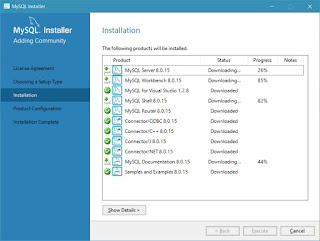I wish I could remember where I copied and pasted this from, but alas, I cannot. Just the same, here's a great overview of what a data scientist would benefit from understanding.
At a minimum, a data scientist needs to be proficient with concepts such as probability, correlation, variables, distributions, regression, null hypothesis significance tests, confidence intervals, t-test, ANOVA, and chi-square. At an advanced stage, data scientists need concepts and algorithms such as logistic regression, support vector machines (SVMs) and Bayesian methods. Common statistical analysis tools such as Excel, R and SAS are very famous among data scientists.
In February of 2018, I was denied admission to a Ph.D. program in Linguistics. As I was navigating the application process, I simultaneously revisited a dormant interest in computer science. In March I enrolled in a certified Computer Science class via HarvardX, which I completed four months later. I am at the beginning of a new phase in my life-long learning process and look forward to that which the future will inevitably deliver.
Subscribe to:
Post Comments (Atom)
SQL
I've hit a wall in my SQL studies via the Khan Academy, and as such, I am engaging in additional studies prior to attempting to move for...

-
I've hit a wall in my SQL studies via the Khan Academy, and as such, I am engaging in additional studies prior to attempting to move for...
-
SQL development If you're new to SQL, you can learn more from this course: SQL . Creating tables CREATE TABLE customers (id ...


Excel as a statistical tool is not in the same class as R or SAS.
ReplyDelete